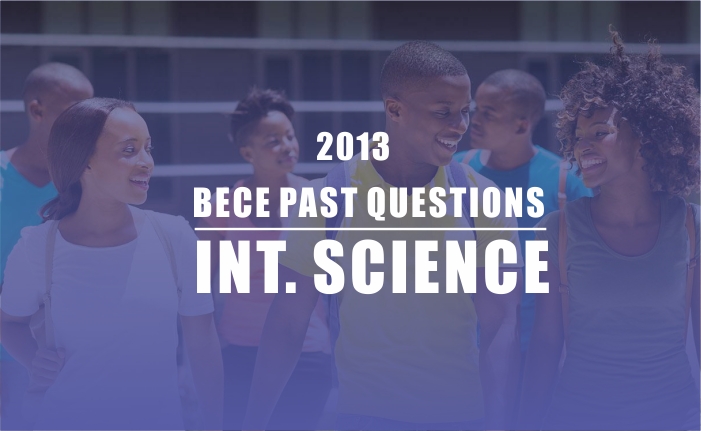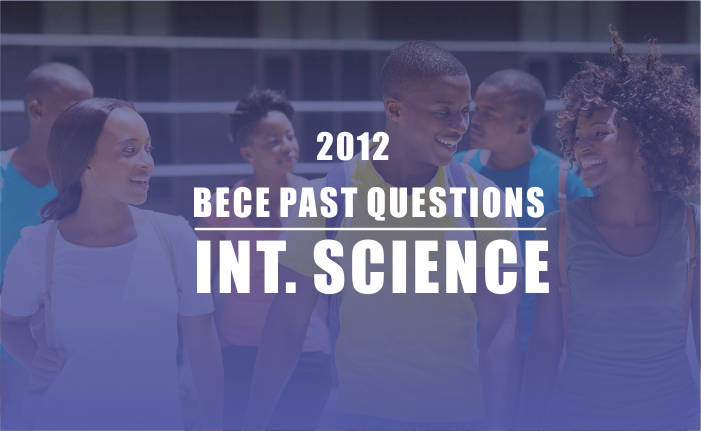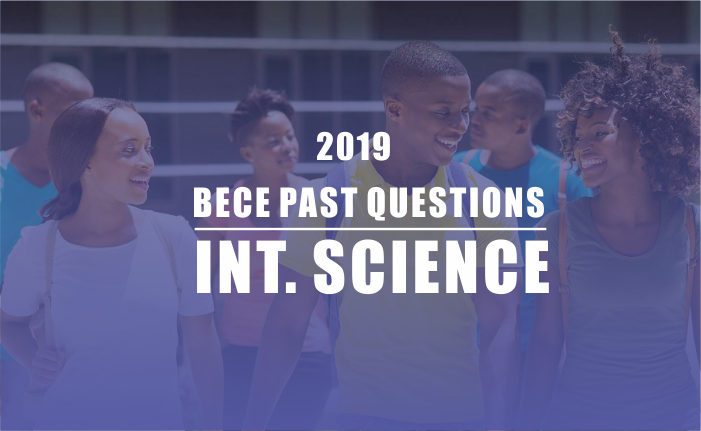Description
BECE 2013 Integrated Science Questions and Answers
The Basic Education Certificate Examination (BECE) plays a vital role for students in West Africa, including Ghana and Nigeria, who aim to advance their education. Integrated Science is one of the core subjects in this examination, covering topics from physics, chemistry, biology, and earth science. For students preparing for BECE, reviewing the 2013 Integrated Science questions and answers can provide insight into question patterns, important topics, and how to structure responses effectively.
Why Study Past Questions for BECE Integrated Science?
Studying past BECE questions, especially from 2013, offers students multiple advantages. These questions highlight frequently tested topics, allowing students to identify areas that require extra focus. Past papers also familiarize students with the question structure and difficulty level, enabling better time management and confidence. Moreover, practice with previous questions allows students to sharpen their problem-solving skills by applying concepts across different scientific areas.
Core Topics from BECE 2013 Integrated Science
The 2013 Integrated Science paper covered a broad spectrum of topics. Here’s an overview of the main subjects tested, along with explanations of common questions and best approaches for answering them.
Photosynthesis and Plant Biology
Photosynthesis, one of the critical processes in biology, is commonly tested in BECE exams. In the 2013 paper, students were asked to describe photosynthesis and its role in the ecosystem. Answering this question effectively required understanding the process by which plants use sunlight, water, and carbon dioxide to produce glucose and oxygen. For strong answers, students should explain photosynthesis as the foundation of the food chain and its importance in producing oxygen, which is vital for animal and human life.

Electricity and Basic Calculations
Electricity-related questions appeared in 2013, requiring students to calculate resistance and understand circuit components. These questions test familiarity with Ohm’s law, where voltage (V) equals current (I) multiplied by resistance (R), allowing students to solve for any variable given the others. To perform well on such questions, students should practice using formulas and manipulating them in different scenarios. Explaining each step clearly in a structured answer helps convey understanding and boosts scores.
Human Body Systems: Anatomy and Physiology
Questions on human physiology, especially about the circulatory and respiratory systems, were included in the 2013 paper. A common question required students to identify the heart’s function in circulating blood and the lungs’ role in gas exchange. Successful answers would detail how oxygen enters the blood through the lungs and is transported by the circulatory system to cells throughout the body. This demonstrates not only knowledge but also an understanding of how systems interact, which is crucial in science exams.
States of Matter and Chemical Reactions
Integrated Science also tests knowledge of matter states and chemical reactions. For example, students were asked to explain phase changes—like evaporation and condensation—within the context of everyday life. Understanding the three states of matter (solid, liquid, and gas) and how they transition is essential for handling such questions. Students should be ready to give examples, such as water changing from liquid to gas through evaporation, and should be able to explain these changes scientifically.
Environmental Science and Ecology
In 2013, topics related to ecology and environmental science were featured, covering areas such as pollution, conservation, and food chains. These questions often ask students to connect scientific concepts to real-world applications, such as explaining the impact of pollution on ecosystems. Answers that include specific examples of how pollution affects plants, animals, and human health typically receive higher scores.

Tips for Answering BECE Integrated Science Questions Effectively
Studying and preparing to answer Integrated Science questions requires more than just knowledge—it requires strategy and a thorough understanding of how to structure answers to gain full marks.
- Understand the Question Requirements: Read each question carefully to understand what it is asking, especially if it has multiple parts. Break down each section and ensure your answer covers all aspects.
- Use Scientific Terms Correctly: Integrated Science questions often test specific terms, such as “photosynthesis,” “evaporation,” and “resistance.” Using these terms accurately and in context demonstrates a strong grasp of the material.
- Practice Calculations Regularly: For questions that involve calculations, such as those on electricity, make sure to write out all steps. Practicing these calculations regularly can help improve accuracy and speed on exam day.
- Relate Science to Real Life: Many Integrated Science questions ask for practical applications of scientific concepts. Practice explaining scientific ideas using examples from daily life, as this demonstrates both understanding and the ability to apply knowledge.
- Review Key Topics Thoroughly: Topics like photosynthesis, states of matter, and basic human anatomy are frequently revisited in BECE exams. Focusing on these high-frequency topics can help ensure you’re well-prepared for core content areas.

Conclusion
Preparing for the BECE Integrated Science exam by reviewing the 2013 questions and answers gives students a practical foundation to succeed. By understanding the key topics, practicing calculations, and mastering the application of scientific concepts to real-world scenarios, students can approach their exams with confidence. Consistent review and focused study of past papers, such as BECE 2013, help students grasp the exam format, improve their problem-solving skills, and ultimately boost their performance on exam day.





Reviews
There are no reviews yet.